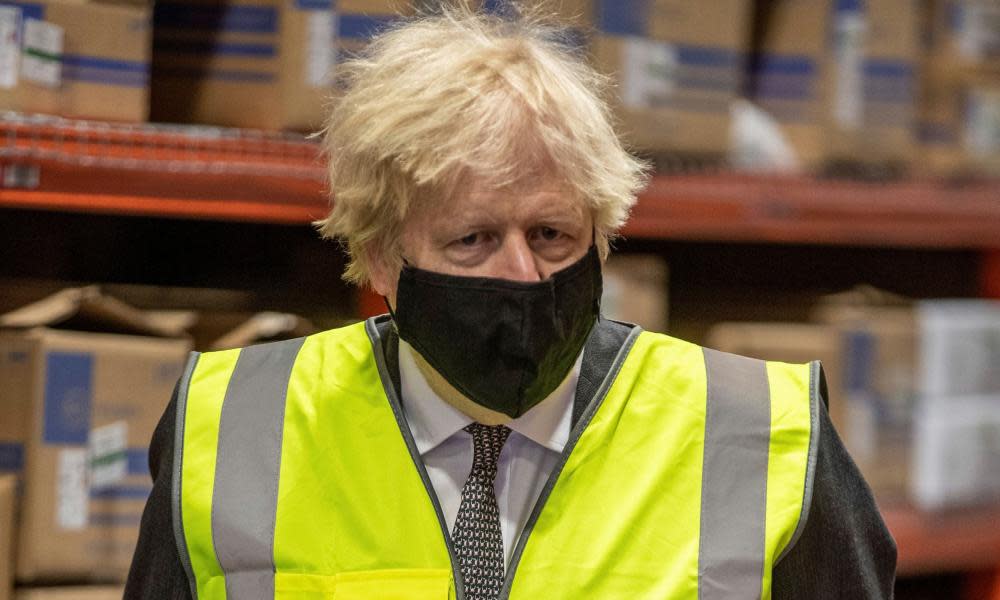The Guardian view on Boris Johnson's plan: levelling down, not up

Today’s Conservative party is the opposite of what it pretends to be. Boris Johnson’s great crusade, he claimed, was to level up Britain. Coronavirus affects everyone, but not equally. Wealthier folk can shrug off the economic shock; the poor cannot. The best way to help those at the very bottom of society is to give them money directly. Whether it’s to feed hungry children or to ensure hundreds of thousands don’t slip into poverty by not cutting benefits from their current level, Mr Johnson seems unwilling to stump up the cash.
Yet the government seems unconcerned about losing £26bn because companies can’t pay back the Covid loans that the state guaranteed. It is puzzling that ministers cannot find a fraction of that for the poor. What is at stake is a conservative principle of personal responsibility: it is up to parents to feed their children and to get the cash to run their lives. Clinging to such ideas in the teeth of a pandemic appears foolish. But Mr Johnson’s skill in politics has been to reconcile apparently irreconcilable ideas.
The prime minister’s political concern is to entrench an economic doctrine even while it drags society under. His policies and instincts remain impeccably Thatcherite, but Mr Johnson knows that policies based on such ideas no longer possess any genuinely popular support. That is why he cloaks them in the flag of Brexit. During the 2016 referendum campaign, the current home secretary, Priti Patel, claimed that “single market” red tape cost the UK £125bn a year. Now, freed from the cage of EU membership, Mr Johnson has tasked his chancellor not with helping the poor, but to find the billions hiding in the paid holidays for workers, employment protections against the “Uberisation” of jobs and consumer rights against corporate bad actors. It was in the City where many saw in Brexit a way to escape EU regulations that had capped their worst excesses. Monopolists are also in for a bonanza: the day after Mr Johnson won the election was the busiest day of trading in UK shares for more than two years, with banks, housebuilders and utilities among the biggest winners.
To render irreversible a system that is at the height of its power but without wide appeal, the prime minister is using his powers of patronage to embed a “chumocracy” at the heart of government and allow Tory donors to be able to buy elections. The Conservatives want to increase the party limit on general election spending from the present £19.5m to about £33m, and abolish the electoral commission that oversees campaigning. The growing scandal of Covid contracts shows that there are unprecedented abuses of governance in this approach.
The rising inequality and unnecessary suffering produced by an unbalanced, financialised economy needs urgent attention and creative thinking. Since 2008, the Bank of England has created about £900bn of money through quantitative easing. For more than a decade, central banks have injected money into the economy without causing inflation. Why can they not print money and give it to the poor who are more likely to spend in a downturn than bankers are to lend? Unfortunately, Mr Johnson so far has little to fix Britain beyond doubling down on the economic orthodoxy that has broken society.

 Yahoo News
Yahoo News 
